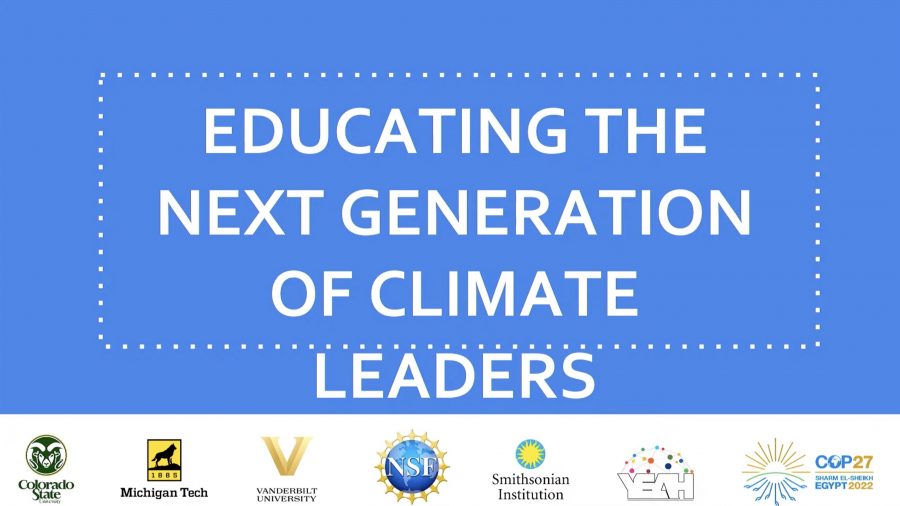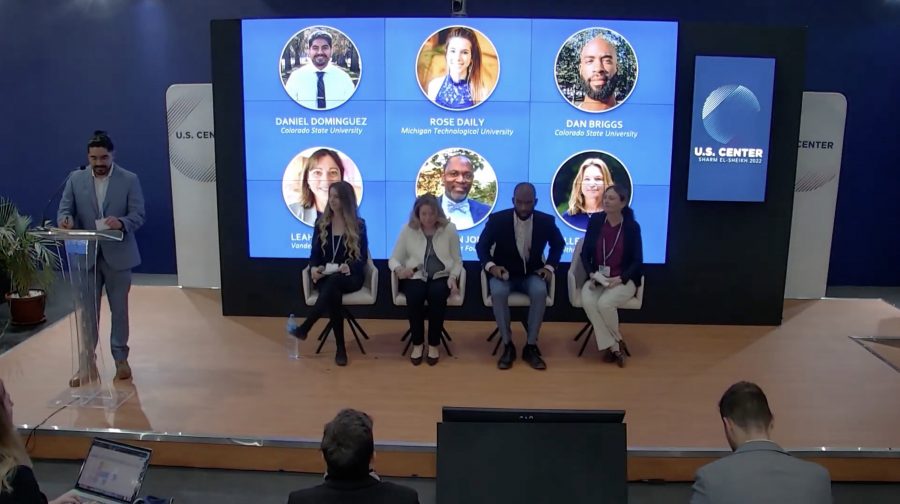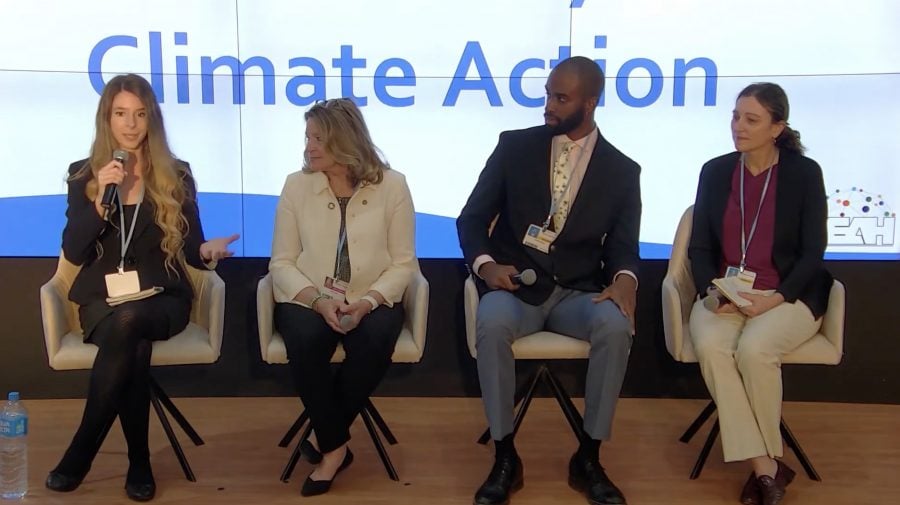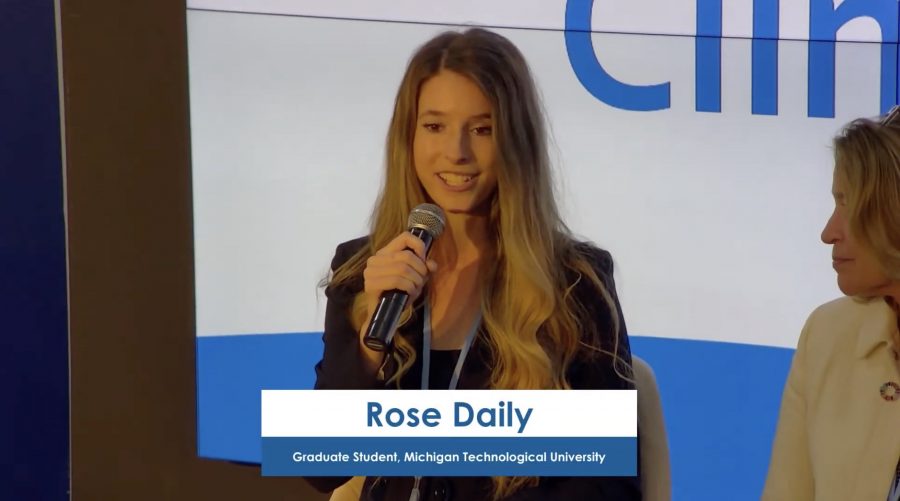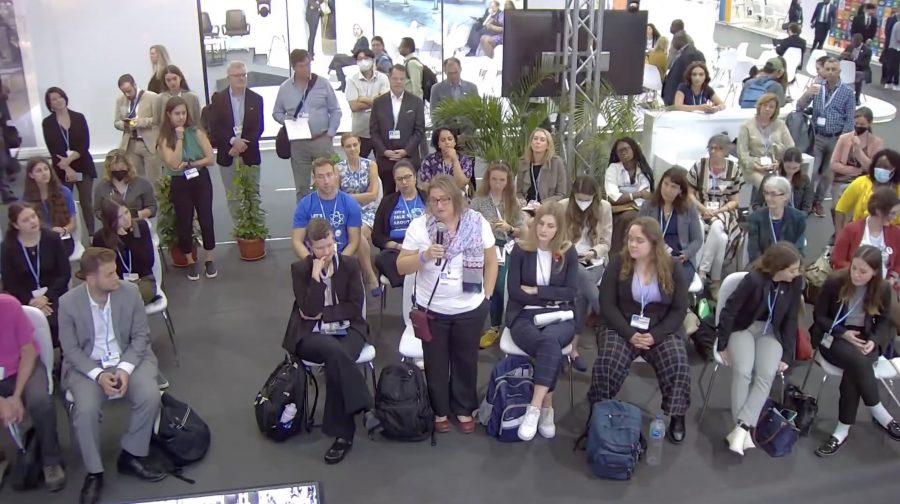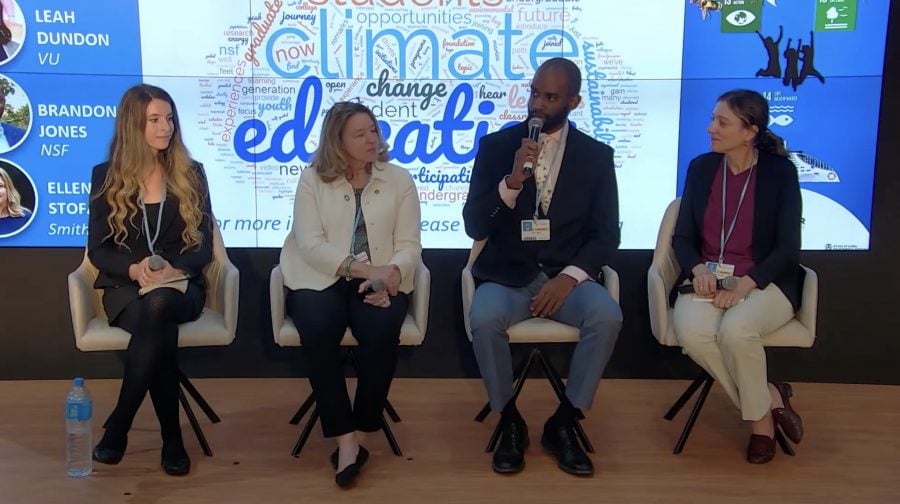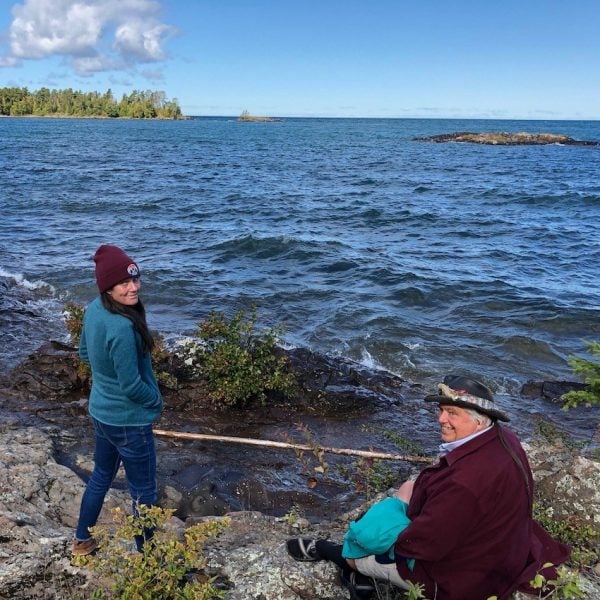
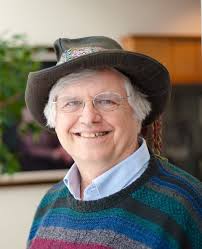
Research Professor Bill Rose, Geological and Mining Engineering and Sciences at Michigan Tech, shared his knowledge on Husky Bites, a free, interactive Zoom webinar on Monday, 11/21. Check out the Zoom recording and register for future sessions at mtu.edu/huskybites.
Everyone loves a great geoheritage stories (geostories for short)—and Prof. Bill Rose has many of them. Joining in, colleague, friend and former student, Erika Vye, Geosciences Research Scientist at Michigan Tech’s Great Lakes Research Center.
Together they co-created Keweenaw Geoheritage, an organization that focuses on education and opportunities for sustainable tourism based on significant geologic features and our relationship with them.
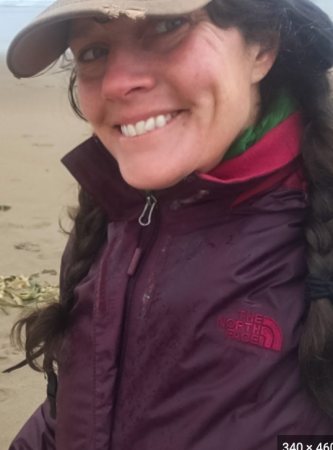
During Husky Bites, Rose and Vye will share the geostory about Le Roche Vert (the green rock). It’s the legend of a turquoise vein of rock that projected from the shoreline at Copper Harbor into Lake Superior, making for a spectacular site. It was located near the current site of the Copper Harbor Lighthouse, where travelers rounded the Keweenaw on their way westward. Known by Native Americans for centuries, the green rock was widely exaggerated and extolled by certain Voyageurs, who were French Canadian trappers and violent wild explorers. This led to the fame of copper and the public awareness of the possible riches of the Keweenaw, Isle Royale and Lake Superior.
They will also share a geostory about one theory concerning the Keweenaw Fault—the result of an important discussion and argument by geologists, done when geology was a very young science, full of uncertainty (it still is!). And they’ll tell the geostory of Billy Royal, Ed Hulbert and the wild boar—and how they found the C & H Conglomerate in 1868.
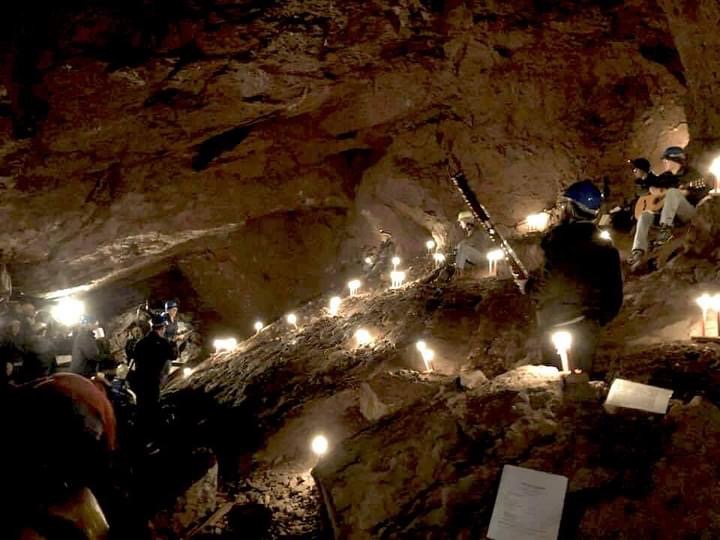
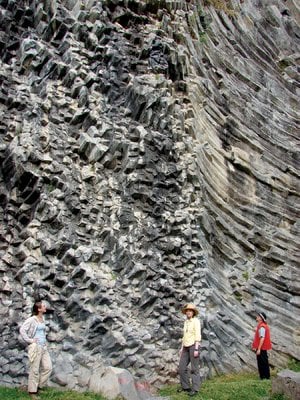
Vye is dedicated to developing sustainable economic opportunities and enriched relationships with the natural environment through formal and informal place-based education. “The emphasis is on broadening Earth science and Great Lakes literacy through interdisciplinary research and learning, community partnerships, and traditional knowledge,” notes Vye.
“Erika is my friend and she heads up geoheritage awareness efforts. She works with teachers, and is linked with Native Americans, environmentally-relevant groups. She works at the Great Lakes Research Center—she is GREAT,” says Rose.
“Bill is a great friend, mentor, and like family to me,” says Vye.
The two met many years ago at a conference when Vye was working in Munich, Germany. “I’d heard great things about the work he was doing here at Michigan Tech related to natural hazards, Earth science education, and social geology,” she says. “After meeting and learning more, I moved to Houghton a few years later to pursue my PhD with Bill (as his last PhD student!). We have since worked together on advancing geoheritage at the local, regional, and national scale.
“We are all connected by our relationships with geology.”
“I have buckets of gratitude to work so closely with Bill on this beautiful work that we hope helps our community to thrive.”
“Life on the Keweenaw shore—come and visit paradise.”
Prof. Rose, how did you first get into engineering?
I am not an engineer. I never got into it. When I arrived in Houghton as a young professor. I had a dual major in geography and geology, but the chance to work as a faculty member in an engineering department sounded good to me. It gave me a chance to go outside, working hands-on in the field, rather than being stuck in the lab. I chaired that engineering department for over eight years.
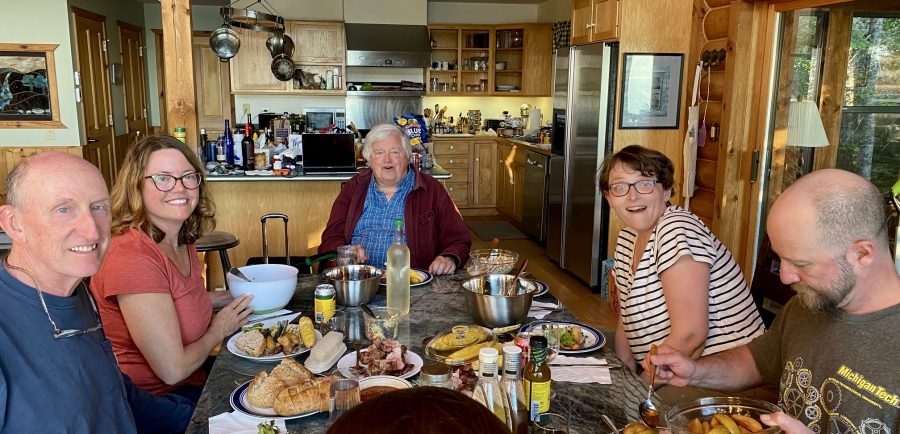
Hometown, family?
Corrales, New Mexico. I have two sons, five grandchildren. One son is a math teacher, the other a geoenvironmental engineer.
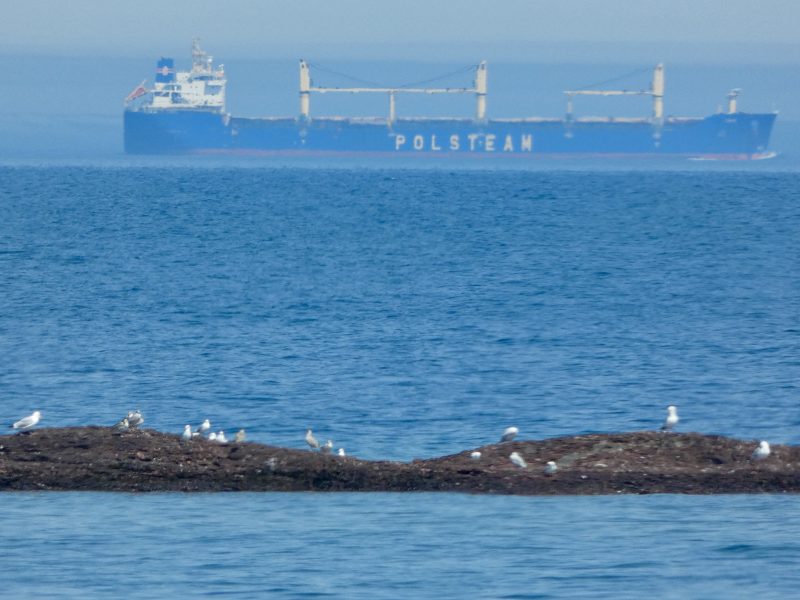
Any hobbies? Pets? What do you like to do in your spare time?
I have dozens of hobbies, but no pets. As a retired faculty my favorite pastime is no meetings, no deadlines, just creative communications and being outdoors.

Dr. Vye, how did you first get into geology? What sparked your interest?
I started my undergraduate studies at Dalhousie University in the theater department. I needed a science elective and fell into geology; I was hooked and switched majors. I am fascinated by the ways rocks and landscapes share stories about Earth’s history, providing us a window to learn about deep time and how our geologic underpinnings are the foundation for our sense of place, our identity. We are all connected by our relationships with geology.
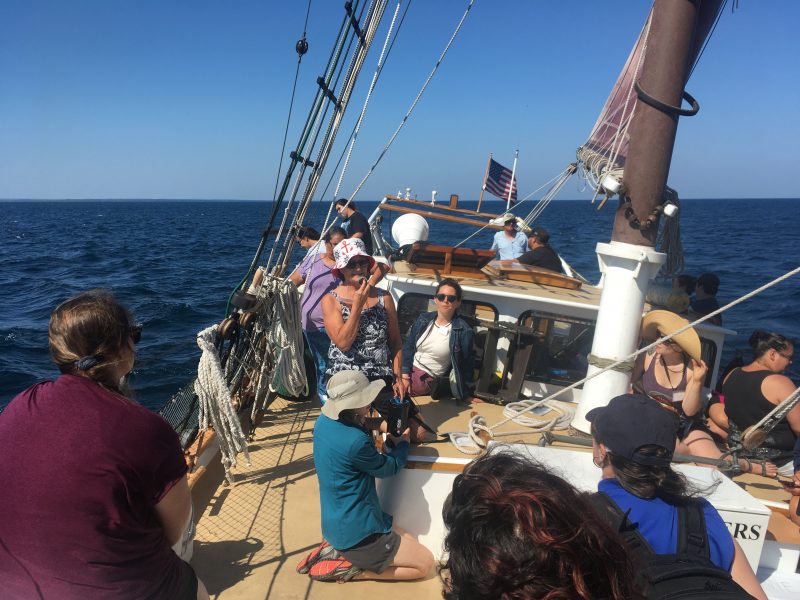
Hometown, family?
I grew up on the east coast of Canada, just outside of Halifax, Nova Scotia—I’ve moved from one beautiful peninsula to another! My parents still live there, and I have a brother, niece and nephew that live in New York City. I now live in Copper Harbor with my partner Steve; a small town of 100 folks in the winter is very much another beautiful family I am grateful to be a part of.
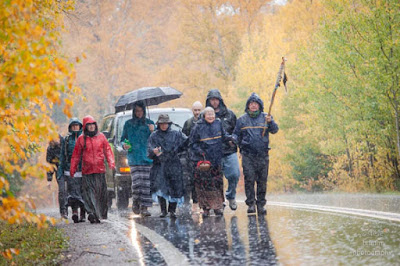
Any hobbies? Pets? What do you like to do in your spare time?
I love gardening, trail running, and am working toward my 200-hour yoga certification to deepen the practice for myself. I am honored to participate in local Water Walks held annually in our community. This Anishinaabe water ceremony is generously shared with our community by KBIC Water Protectors to raise awareness about the importance of water and the need for protection and healing of our water relationships.
Geostory Videos
- Ben Franklin and Superior Negotiations, 1783
- Big Annie and the 1913 Copper Strike
- Billy Royal, Ed Hulbert and a Wild Boar Find the C & H Conglomerate—1868
- Cornish Pasties and Keweenaw Miners
- Jane Schoolcraft: Jane and Two Henrys, Along with Hiawatha
- Keweenaw Fault Discussion, 1885
- Green Rock: Le Roche Vert at Copper Harbor—Voyageurs’ Tales
- Louis Agassiz, Glaciers and Egotism
Read More
EARTH Magazine book review: “How the Rock Connects Us” shares copper country geoheritage
